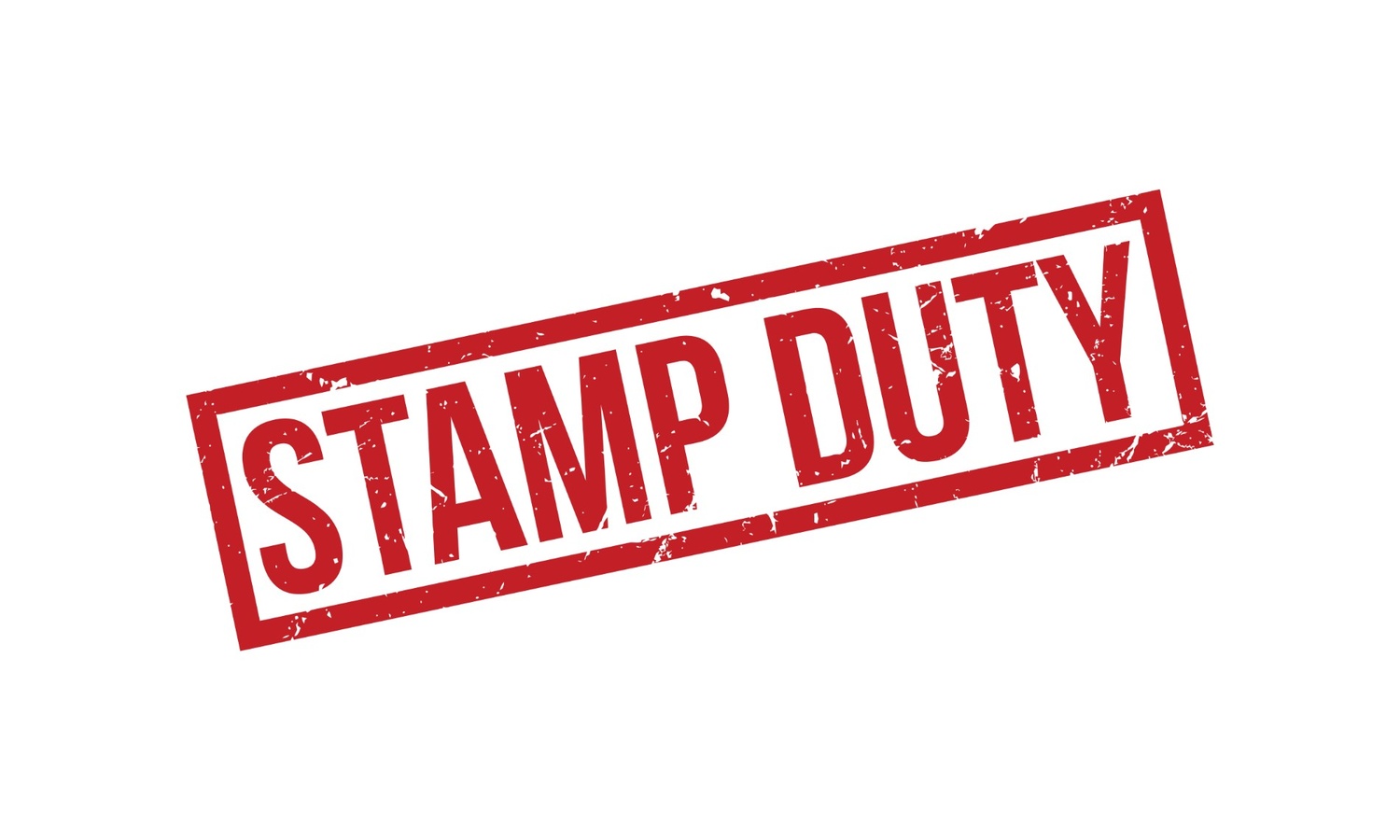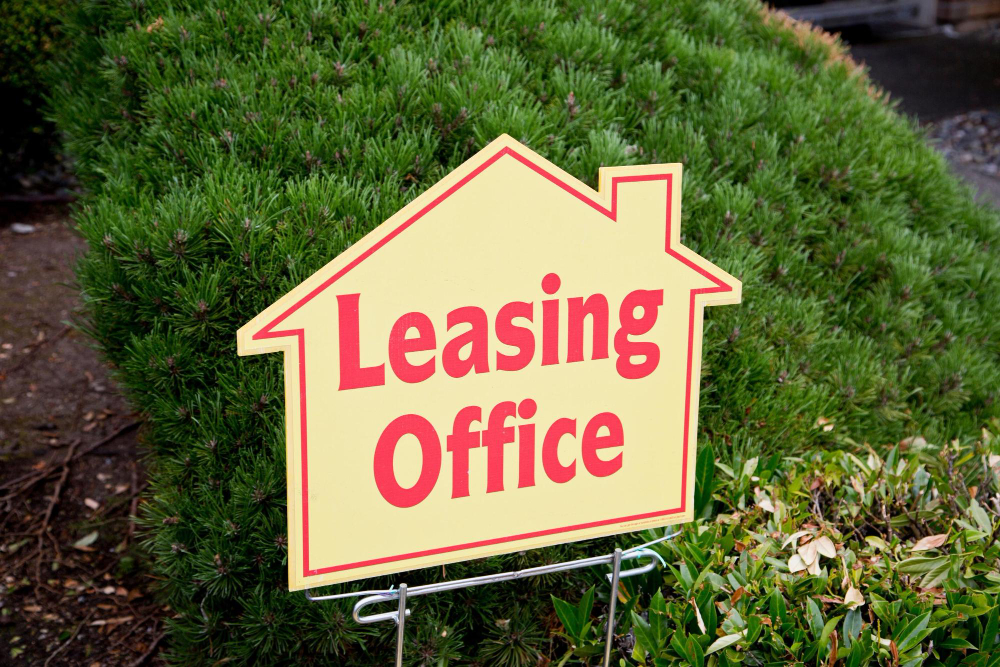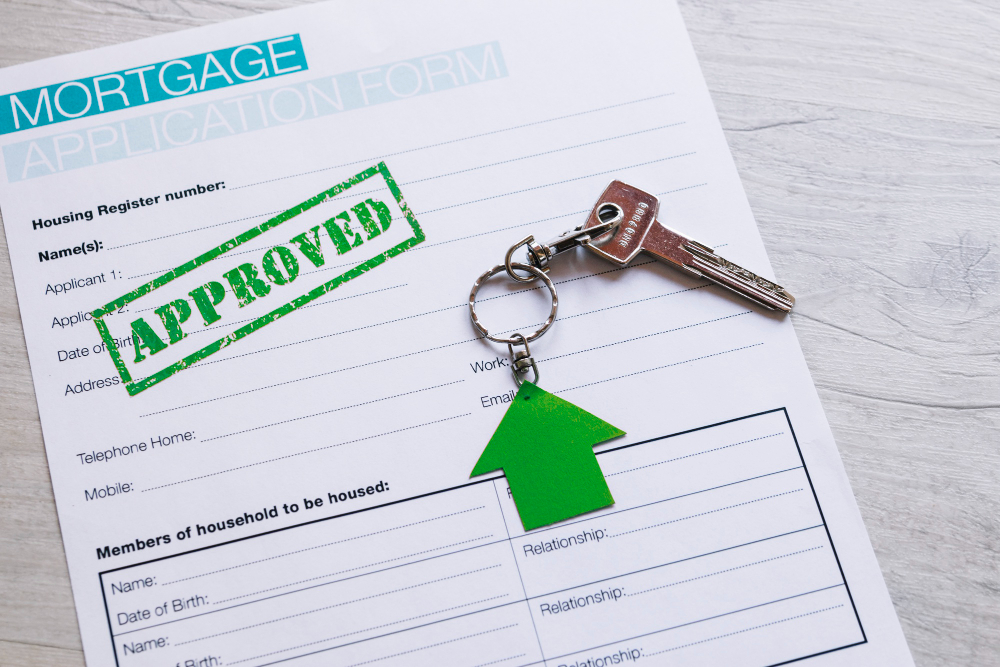Uncovering the Hidden Costs Of Buying a House In Kenya
Hidden costs are the additional expenses associated with the home-buying process. The journey has many stopovers that are not cheap. A first-time home buyer must understand that the journey is long and expensive. It is often daunting and tiring; along the way, you will need a team or people to support you. These people, however, need to be paid for their services.
In this article, we will uncover all the hidden costs that most buyers overlook and get surprised over getting them along the way.

Stamp duty is a form of tax levied on any legal instrument, such as cheque receipts, military commissions, marriage licenses, land transactions, and shares. In our case, we will discuss land transactions or house price.
In Kenya, the Kenya Revenue Authority, under section 2 of the Stamp Duty Act cap 480, regulates and collects stamp duty fees. The rate for stamp duty varies with the nature of the instrument. The rate is 4% in the urban area, and in the rural area, it is 2%.

Failure to comply with the stamp duty results in consequences of invalidity of the transaction, and any agreement signed between the buyer and seller of land becomes null and void.
Stamp duty must be paid within 30 days after the assessment, and documents executed abroad but brought for registration locally must be paid within 30 days of receiving the documents.
Exemption for stamp duty is present in transferring land to charitable organizations between spouses or family members to the demise of a member whose name the property was registered.
Here are the steps to make payments for stamp duty.
Log in to iTax and navigate to Payments.
Select Payment Registration.
Under Tax Head, choose Agency Revenue, then select Stamp Duty under Sub Head.
Choose Payment Type as Self-Assessment, and click on Payment Registration.
Enter the Bill Reference Number.
Fill in the Nature of the Instrument. (land)
Provide the Transfer Details (including PIN).
Enter the Buyer’s Details (including PIN).
Complete the Stamp Duty Details.
Specify the Rate of Instrument and the Total Amount to be paid.
Select the Mode of Payment and submit the form.
Property registration fees are governed by the sale agreement between the buyer and seller, which determines who is responsible for paying them. The title deed search fee, which is around 500, kes typically paid by the buyers or their legal representative and is used to verify the legal ownership and any disputes in the property.
The Land Registration Act 2012 requires this step, which ensures the title is a valid legally binding document valid and free of encumbrances.
Property registration fees included land rates clearance, which the seller pays to clear any outstanding land rates before the final payment. The law governing this home buying process is the Valuation for Rating Act, which states that all rates owned by the local county government have to be cleared before any ownership is transferred.
Apart from the land rates, the land rent clearance fee is particularly relevant to leasehold title deeds. Leasehold land has to be cleared before consent is given for transfer, and the seller is usually responsible for this fee.

The Land Control Act, Cap 302, mandates LCB consent for agricultural land transactions. The land control board clearance requires a Ksh 1000 consent fee for agricultural land. The one to pay for this depends on the sale agreement.
After closing the home buying process deal, the process of transferring the title deed registration follows. The buyer generally pays the registration fee, which is usually Ksh 5,500, to have the title deed transferred and registered in their name.
The valuation costs are provided under the fee scale, Valuers Act Cap—532 of the Laws of Kenya.
The rates are as follows.
Urban, Rating and Agriculture Valuation
First Kshs. 2,000,000 at 1.0 per cent
Residue at 0.25 percent
Compulsory Acquisition Valuation
First Kshs. 2,000,000 at 2.0 per cent
Residue at 0.5 percent
Rental Valuation First Kshs. 400,000 p.a at 10 per cent
Residue at 5 percent.
Plant, Machinery and Automobile,
First Kshs. 5,000,000 at 1.5 per cent
Residue at 0.5 percent.
Furniture, Fittings, Equipment, Trading Stock and Going Concerns,
First kshs. 1,000,000 at 5 per cent
Residue at 2.5 percent.
Minimum Valuation Fees -kshs.15,000 for any valuation.
Consultancy -A minimum of Kshs. 5,000 per hour, where such consultancy does not involve carrying out a valuation, compilation of a valuation report, or advice on the property's value.
Traveling Expenses and Disbursements: These shall be based on the costs incurred in undertaking the valuation.
A mortgage helps most home buyers obtain their dream house . However, borrowers may encounter several costs and fees when obtaining a home loan . These fees can vary based on the lender, property location, and specific mortgage terms, so borrowers must clarify how much monthly payments to be paid upfront to avoid surprises during the mortgage process.

Down payment is the initial amount paid upfront by the borrower toward the property. Depending on the lender's requirements, it typically ranges between 10% and 30% of the house price.
Mortgage registration fee is paid to register the mortgage with the Land Registry, ensuring the lender’s interest rate in the property is noted. The cost is typically fixed and varies depending on the local registry office.
Loan Application/Processing a fee the lender charges to process the mortgage plan application. This fee covers administrative costs and varies between lenders, the interest rate ranges from 0.5% to 1% of the loan amount.
The mortgage lender requires a valuation to ensure the property is worth the loan amount. A fee is paid to a licensed valuer to determine the property's market value, which usually depends on its size and location.
A Lawyer ensures the bank loans and property documents are registered correctly. This lawyer fee is typically a percentage of the house price, ranging from 1% to 2%.
Disbursement fees are additional fees charged by the lawyer or the lender for various services, such as document handling, courier services, or official searches.
Lenders often require mortgage protection insurance to cover the loan in case of death, disability, or critical illness.
Property Insurance protects the property against damage or loss, such as fire or natural disasters. Both types of insurance are typically added to the overall mortgage costs.
Mortgage arrangement fee are fee charged for arranging the mortgage, which may be a percentage of the loan amount or a fixed fee. This fee compensates the lender for structuring and securing the loan.
Loan repayment terms: if the borrower repays the mortgage before the agreed term, some lenders charge an early repayment fee to cover the interest lost. The lender may impose a penalty fee if a mortgage payment is missed or delayed.
An interest fee is the cost that comes from the loan principle. It is the cost of the mortgage loan, expressed as an annual percentage rate (APR). Depending on the loan terms, it could be a fixed or variable rate, and the borrower will pay interest throughout the mortgage term.
Survey fees are charges paid to a licensed land surveyor to confirm the property boundaries and ensure that the land measurements match those in the title deed. This process is a crucial stage for verifying the exact size and location of the property, particularly before completing the purchase price or transfer.
The buyer or property owner typically pays survey fees. They ensure that the property boundaries are correct and the land is free of boundary disputes with neighboring properties. The survey cost varies depending on the size of the land, its location, and the complexity of the survey.
After owning a home and moving in, residents must pay fees for shared facilities and services, especially in a gated community. These charges ensure that the communal areas and amenities are well maintained, allowing residents to live comfortably and securely in the neighborhood.
The residents fund the upkeep of amenities like security services such as guards or CCTV, the cleaning and maintenance of hallways or playgrounds, and utilities such as water, electricity, or elevators. They also fund waste management services, garbage collection, and repairs and upgrades for shared facilities such as the gym, swimming pool, and parking areas.

The service charges are calculated transparently, considering factors such as the property size, the type of unit, or as agreed by the community governing system. This ensures that everyone pays their fair share.
The homeownership service fee is important as it ensures overall value and the smooth operation of shared services, benefiting everyone in the community.
An insurance company pays home insurance to protect your home from unexpected events such as theft, natural disasters, or damage. It's important to note that the homeowner or mortgage lender must pay these costs. In some cases, the insurance also offers liability coverage if someone is injured on your property.
Kenya has many types of insurance companies, and their services vary. The common type of insurance is building insurance. This type of insurance ensures that the home's structures, like the roof, walls, and permanent fixtures, are protected.
Contents insurance protects personal belongings like current furniture, electronics, and clothing inside the property. A combined insurance package includes coverage of the building and its continents.Insurance costs depend on property location, value, coverage amount and type, and whether security measures can lower costs.
Home insurance is an essential investment that safeguards your property and provides peace of mind in the event of unexpected losses or damages.
Once they settle down, homeowners are often surprised by the charges. The fees most often overlooked are the installation fees for electricity, water, gas, and internet.
These fees can be unexpected and vary significantly depending on the provider and region. Therefore, homeowners must be proactive and check with utility companies before budgeting for potential connection costs.
Renovation and repair costs are expenses incurred when updating, fixing, or improving a property after it has been bought. The costs range from minor repairs to extensive renovations, depending on the condition or buyer's reference to the state of the house.
Home renovations serve to make a property safe, functional, and in good shape. Common projects include interior plumbing and electrical system, roofing, painting, floor plan upgrades, kitchen or bathroom remodeling, and landscaping. Understanding these typical renovations can help you plan andsave enough money for your own home improvement projects.

The scope of work and availability of materials and labor affect the cost of the renovations and repairs. Some renovations may require building permits, which might add to the cost. Professional contractors, electricians, or plumbers charge for their services, and costs can vary based on the complexity of the work.
Renovation and repair costs should be factored into the total budget when purchasing a home, especially if the property is older or needs significant updates.
Real estate agent commission fees are the fees charged by a real estate agent for their services. According to the constitution, the Estate Agents Act (Cap 533) regulates a real estate agent in Kenya. It establishes the Real Estate Agent Registration Board, which is responsible for licensing a real estate agent, maintaining a register of licensed practitioners, and ensuring ethical practices.
Usually, the seller pays the real estate agent commission, but in some cases, the buyer may also share the cost depending on local practices. The law mandates that any commission or fee charged by a real estate agent must be agreed upon between the agent and the client and should be reasonable. This ensures transparency and fairness in real estate market.
The real estate agent is responsible for marketing the property, facilitating negotiations between the buyer and seller, handling the paperwork and legal processes involved in the transaction, and guiding clients through home buying process.
The Commission Rates range from 5% to 10% of the sale price, though rates may vary by location and agreement.Real estate agents are essential in the home buying process, as their expertise and efforts contribute to a successful sale.
To do a home inspection you need to hire a professional home inspector.A professional home inspector assess the condition and safety of the home before purchase.The inspection is done on elements like the electrical systems,plumbing ,roofing ,electrical systems and other essential areas to ensure the house is free from any major defects.
The buyer pays the for the home inspection and the cost varies from home size,location and the inspector expertise. A home inspection ensures that the home is safe and worth the investement to be made.
Most buyers are often unfamiliar with the escrow fees .These fees are an unavoidable and play a crucial role in the real estate market.
Escrow fees are fees paid to a natural third party service to hold money or important documents for property until certain conditions of the sale are met. Escrow agents facilitate a smooth transaction. Once the conditions of the sale are satisfied—such as inspections being completed or loans being approved—the escrow agent releases the money or property to the respective parties.
Though escrow fees may feel like an extra financial burden, they are vital for ensuring the integrity of a real estate market transaction. By acting as a neutral third party, the escrow agent reduces the risks for both parties, providing security and peace of mind.These fees to be paid to the agent are often split between the buyer and seller. This may however vary from the agreement made by both parties involved.
An Escrow Fees depends mostly on the property value,location or the complexity of the transaction.This in the range of 0.1% to 2% of the properties sale price.For example, if you are purchasing a property worth $500,000, escrow fees could be anywhere between $500 and $10,000. The specific costs can also depend on the escrow company's pricing structure, as some may charge a flat fee, while others base their fees on a percentage of the sale price.
Ways to Reduce Escrow Fees could include buyers and sellers shopping around for competitive rates by comparing different escrow companies. Some companies might offer lower fees for simpler transactions or bundle services like title insurance and escrow, potentially reducing overall costs.
Also understanding local customs and being prepared to negotiate can help in lowering your out-of-pocket expenses.By understanding what these fees cover, how they are calculated, and exploring ways to reduce them, both buyers and sellers can navigate the home buying process with greater confidence and control.
An Environmental Impact Assessment (EIA) is a critical step in the construction process to ensure your project complies with environmental and public health regulations. An environmental impact fee arises when you purchase properties near sensitive eco systems ,agricultural land or areas with specific environmental regulations .
These fees are used fund conservation efforts, ensuring that future development does not compromise the area's ecological balance. Buyers should be aware of these fees, especially in areas with strict zoning and environmental protection laws, as they can add a significant post-purchase price.
In Kenya,National Environment Management Authority (NEMA),helps in the environmental impact assessment.This assesment safeguards, management, and monitoring plans to protect public health and the environment while promoting sustainable development.
There are graded fees for the registration and licensing of EIA experts, along with other related processing fees. NEMA charges an EIA processing and monitoring fee of 0.1% of the total project cost, with a minimum fee of Ksh10,000. For larger projects, particularly those exceeding Ksh5 million in value, an additional fee is payable to the National Construction Authority (NCA). In this case, you would need to pay 0.5% of the project’s contract value to the NCA before commencing construction.
Post purchase costs are expenses that involve moving ,setting up utilities and furnishing the new home.The moving fees are depend on the distance,volume of items being transported and the professional movers hired.
The movers charging fee depend on the distance involved, size of the move ,nature of the move ,the location of the building and additional services to be included.The additional services include TV mounting or DSTV installation.
They also provide time-saving services including a moving truck for packing, transporting, and setting up your new home or office. Hiring professional movers helps prevent damage to valuable items and reduces stress during the moving process.
Security installation fees are fees that cover the cost of installing alarm systems ,surveillance cameras,smart locks and other security devices to safeguard the home. The cost of safeguarding the home depends on the complexity of the systems and the level of protection desired.A basic alarm system is much more affordable than an advanced systems that come in built with video surveillance,remote monitoring and smart home integration.
The security is a valuable investment in protecting your home fromm break ins ,vandalism or the peace of mind.There are some neighbourhoods that have specific requirements regarding home security hence it is important to understand what is required before making a decision.
Title deed corrections and updates involve legal fees that is charged to change anything in the title deed like misspelled names ,incorrect boundary descriptions or unresolved encumbrances.These fees cater for the cost of clearing any outstanding claims or liens on the property.
The cost for correcting or updating the title deed can vary based on the government filing fees ,processing charges and legal assistance.Ensuring that the title deed is free from any encumbrances that may potentially affect the property is essential.
To sum it up several expenses are often overlooked by home buyers which are very costly and need to be budgeted for.The stamp duty tax for example is a tax on property transactions regulated by the Kenya Revenue Authority, set at 4% in urban areas and 2% in rural ones.
Another major hidden cost is the property registration fees which is paid by the buyer to verify legal ownership and ensure that the title deed is free from disputes. The buyer also pays a registration fee to have the title deed transferred in their name.
The valuation costs are highlighted and include separate rates for compulsory acquisition, rental valuation, and machinery valuation. Travel and disbursement costs for valuers are also part of this expense.
Most buyers apply for a mortgage and have to account for several related fees, including the down payment, loan processing fees, and mortgage registration fees. Additional charges such as valuation and processing fees,legal fees, and mortgage insurance premium can make this process more expensive than anticipated.
survey fees are essential for confirming property boundaries before purchase, particularly in rural areas. Homeowners moving into gated communities or apartments should expect home owners association fees which fund the maintenance of shared facilities like security, utilities, and recreational areas.
Beyond these initial expenses ther are post-purchase costs such as moving and setting up utilities. Many buyers are surprised by the high cost of installing electricity, water, and internet. Security installation fees for alarm systems, surveillance cameras, and smart locks can also add a significant expense.
Title deed corrections are discussed as potential post-purchase costs. Legal fees may be required to address inaccuracies in the deed, such as misspelled names or incorrect boundary descriptions, or to resolve claims on the property. These corrections ensure that the buyer’s title is legally sound.
The article concludes by emphasizing that all these hidden costs increase the total cost of homeownership.Home buyers are encouraged to plan for these expenses to avoid financial surprises and ensure that they can handle both the purchase price and the associated costs. Understanding and budgeting for these fees upfront can make the home-buying process smoother and less stressful.
Hidden costs of buying a new house include ,Legal fees ,Stamp duty (2-4% of property value) ,Valuation fees, Land search fees ,Title transfer fees ,Insurance costs, Connection fees (water, electricity).
Typically 1.5-2% of property value ,Minimum fee usually around KES 35,000 ,Can vary based on property value and complexity
Property maintenance, Annual land rates ,Insurance premiums ,Security costs ,Utility deposit , Service charges (for apartments) ,Property taxes
Basic valuation: KES 10,000-25,000 ,Detailed valuation: 0.1-0.25% of property value ,Additional costs for travel and documentation ,Government valuation fee: Around KES 5,000
2024 movers in Nairobi prices: Moving companies in Nairobi Kenya. Absolute Movers Kenya. (2024, June 15). https://absolutemovers.co.ke/movers-in-nairobi-prices/
Breaking down the taxes you pay when building a house in Kenya. RSS. (n.d.). https://www.money254.co.ke/post/breaking-down-the-taxes-you-pay-when-building-a-house-in-kenya-info
Irungu, S. (n.d.). Home. National Environment Management Authority (NEMA). https://www.nema.go.ke/index.php?option=com_content&view=article&id=365%3Areinstatement-of-environmental-impact-assessment-and-related-fees&catid=10&Itemid=524#:~:text=Environmental%20Impact%20Assessment%20License%3A%200.1,000%20with%20no%20upper%20capping.
Mmtk. (2024, June 6). Additional costs when buying or selling property in Kenya. MMTK. https://mmtklaw.com/additional-costs-when-buying-or-selling-property-in-kenya/#:~:text=Agents’%20Costs%20(Commissions),property%20transfer%20and%20legal%20costs.
Publishers, A. and. (n.d.). Valuers scale of fees (Kenya) – professional valuation fees. Land Portal. https://landportal.org/library/resources/valuers-scale-fees-kenya-%E2%80%93-professional-valuation-fees#:~:text=A%20minimum%20of%20Kshs.,the%20value%20of%20the%20property.
21 hidden costs of buying a home and how to prepare | citizens. (n.d.). https://www.citizensbank.com/learning/the-hidden-unexpected-costs-buying-a-home.aspx